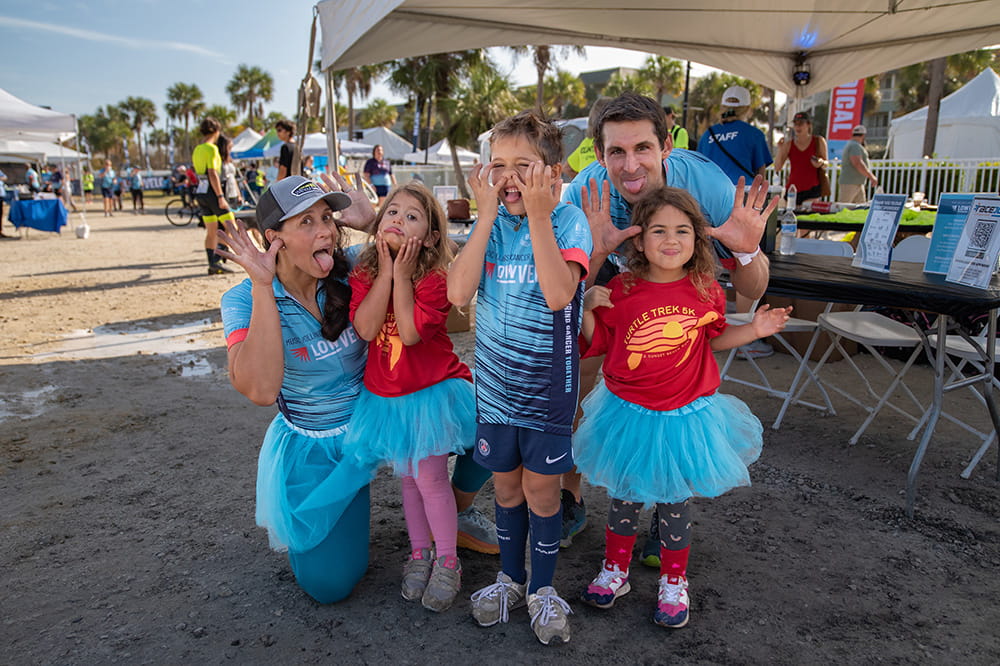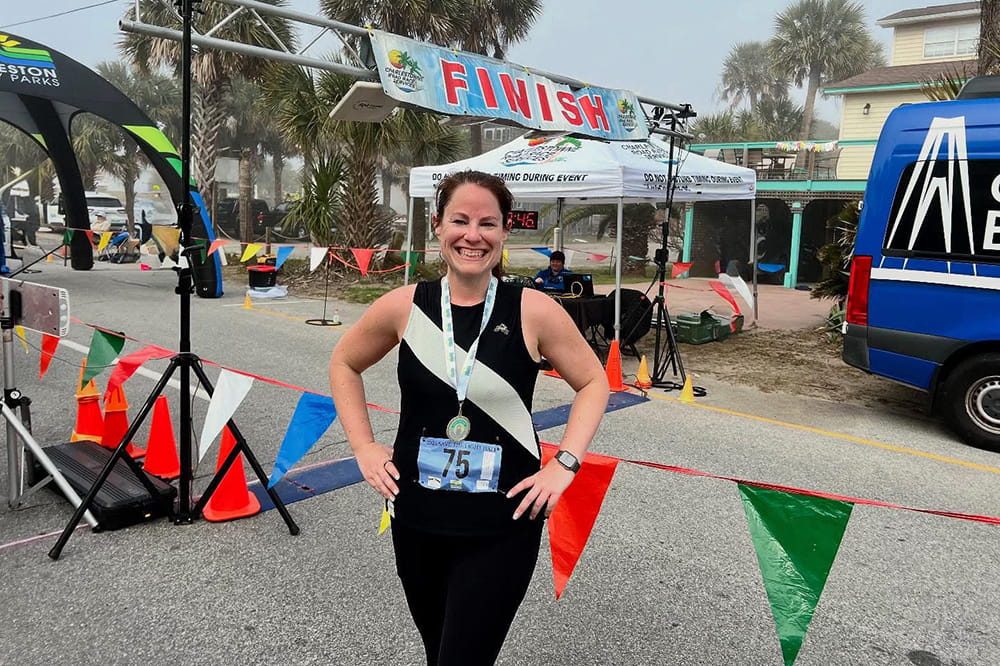A cancer diagnosis can take a toll – both physically and mentally. And understandably, many patients put their mental health on the back burner to focus on physical healing. Unfortunately, cancer survivors face an increased risk of developing depression due to grief over the loss of their pre-cancer lives, body image issues, fear of recurrence and survivor's guilt.
The data shows that one in four cancer survivors suffers from depression, which can lead to decreased physical and social functioning, a lower quality of life and reduced survival rates. This is why a team of MUSC Hollings Cancer Center researchers, with funding from LOWVELO, is working to reduce depression among a growing population of survivors and improve their quality of life.
Jennifer Dahne, Ph.D., and Evan Graboyes, M.D., are the principal investigators of the Optimizing Care for Cancer Survivors with Depression (OASIS) program. The initiative aims to identify patients with depression more effectively, connect them to care and deliver treatment.
"There are issues all across the health care delivery system when it comes to improving depression outcomes for cancer patients," Dahne said.
Current approaches to depression screening, referral and treatment among cancer survivors are often inadequate and face barriers at every step. These include patients being uncomfortable asking for help, receiving incorrect treatment, limited staff and resources and a shortage of clinicians.
"All of the leading organizations recommend that we should screen patients with cancer for depression and refer those people who screen positive for treatment and deliver evidence-based treatments. But that set of recommendations and current system is very broken, with lots of challenges along the way," shared Graboyes.
That's what the OASIS program is focused on – improving treatment delivery across the entire spectrum. The researchers will test how well this system works in different areas and use what they learn to apply for larger grants from the National Cancer Institute so they can help even more people in the future. Early feedback from participants has been positive and promising.
While larger grants and additional funding will be needed to grow and continue this project past its current two-year commitment, LOWVELO is the reason Dahne and Graboyes are able to work on OASIS right now.
"We couldn't do this without LOWVELO funding," said Dahne.
Graboyes agreed. "We would not be solving critically important problems for cancer survivors with depression living in South Carolina if we didn't have LOWVELO to make it possible," he said.
Graboyes, who has participated in LOWVELO since the first ride in 2019, encourages his colleagues and friends to ride, fundraise or participate in any way they're able. His entire family now takes part in the event; he thinks it is a great way to show his children how they can help make the world a better place.

"I ride because it is a chance to feel like I am a part of something bigger and greater. I think we feel that sense of community as clinicians and researchers at Hollings all the time. I think we know that what we're doing matters – but when I'm about to start riding or at the finish line, and I see all these other people, it just makes it very vivid how many people are affected by cancer and how that group of people can come together to help make it better for the future," said Graboyes.
Dahne also participates in LOWVELO as a member of the "Home Team," which allows participants to raise funds on their own time and from any location.
"My husband has tried to teach me how to ride a bike... You know that could have been the end of our marriage," she laughed. "So, we backed off of that. But it was kind of nice because I was training for a half marathon at the time, and I was like, 'I'm going to make this long run my LOWVELO run, on my own, even though no one can see it.'"

One hundred percent of every LOWVELO participant-raised dollar directly supports the research of Hollings scientists like Dahne and Graboyes. To date, more than $2.9 million has been raised to advance cancer research and care.
"The Lowcountry is generally a quite active community, and people sign up for different races or rides where there is a donation component to it, but where are your dollars going?" asked Dahne.
"Unfortunately, most people will have someone they know, a loved one, diagnosed with cancer at some point in their lives, and if they want to get the best care in the area, they're going to come to Hollings, right? The dollars that you're contributing through LOWVELO go directly to lifesaving research and care in your own community," said Dahne. "So, when you're thinking, 'What active community things do I want to participate in?' – from my perspective, LOWVELO is a great use of your dollars."






